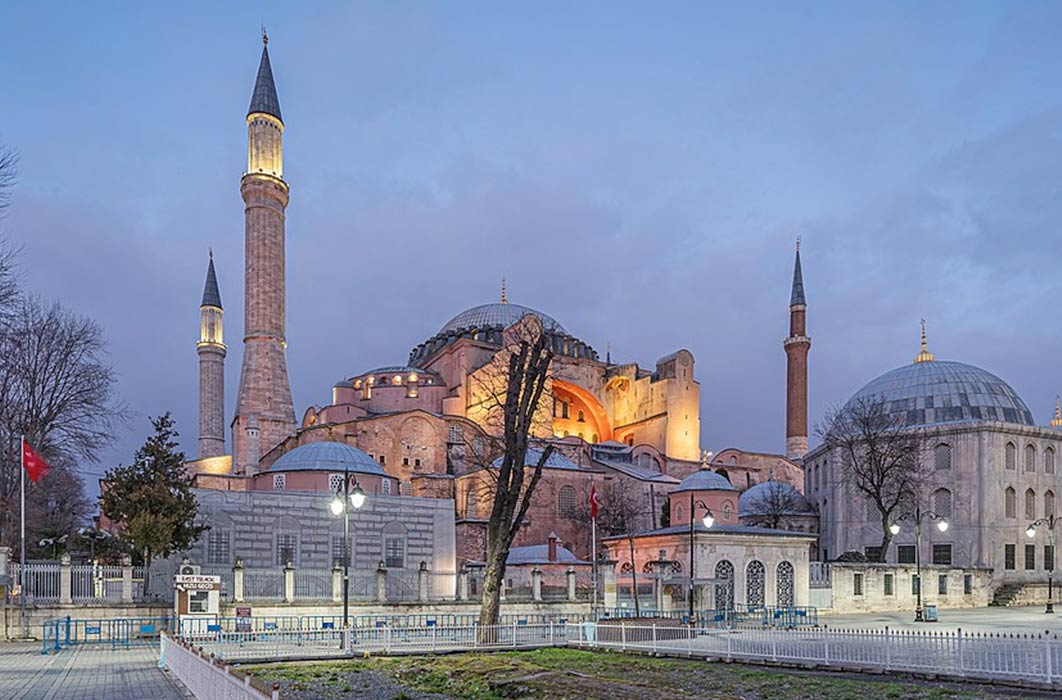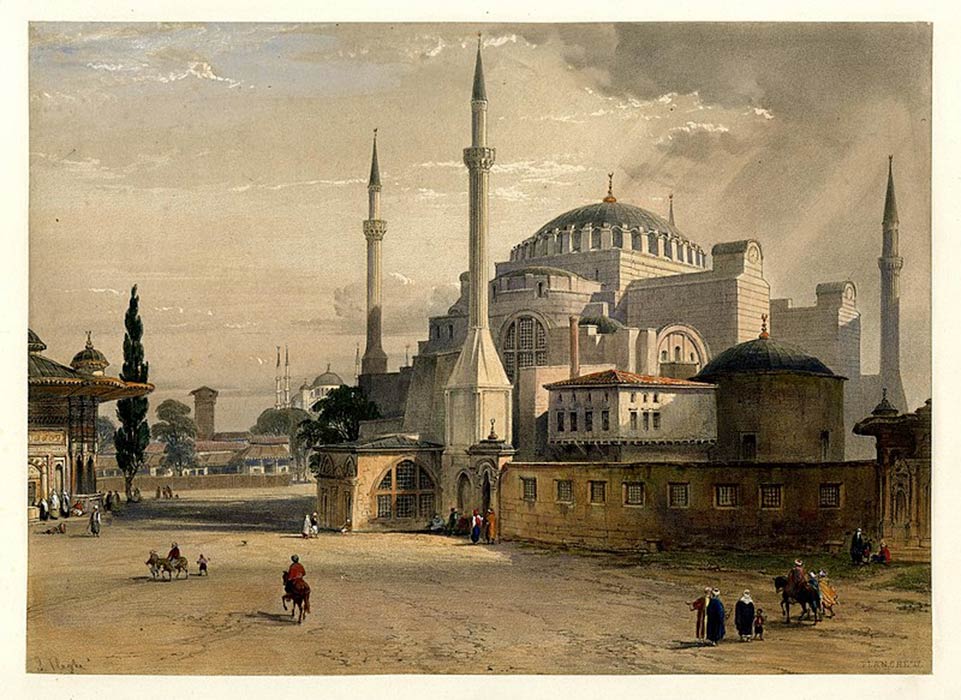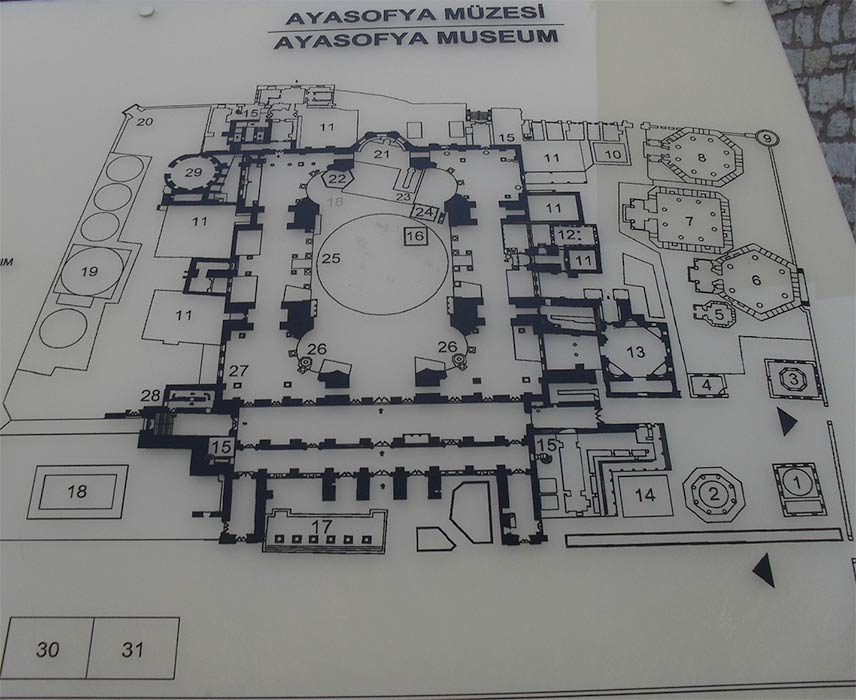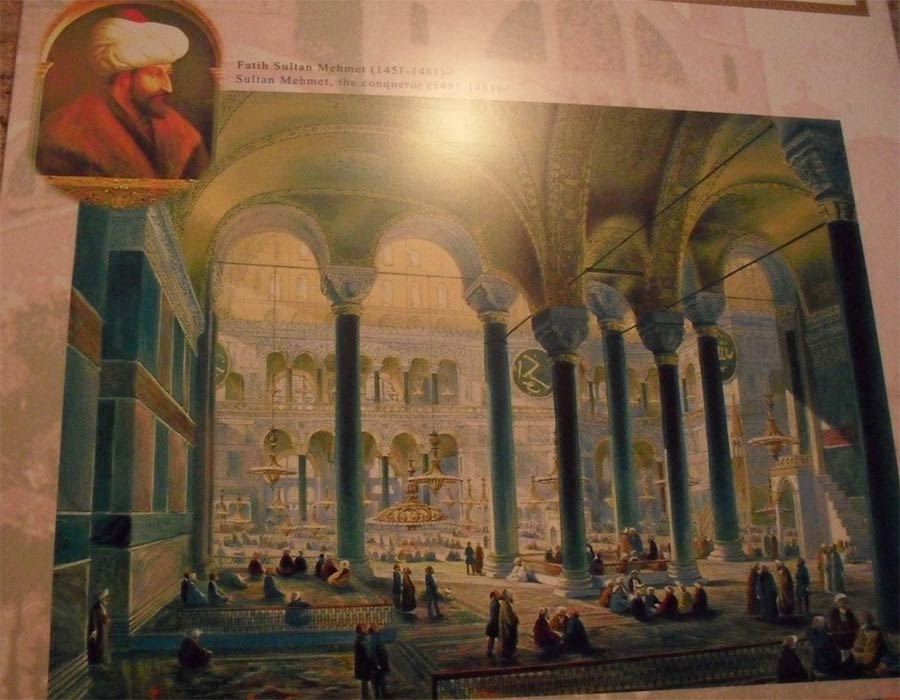
The Storied Past of Istanbul’s Hagia Sophia
On July 12, 2020, Pope Francis stood silently in a pulpit placed in the large window overlooking St. Peter’s Square at the Vatican in Rome. He had just delivered the weekly Angelus prayer given each Sunday, which had lifted up those who work at sea, far from their homes. After a moment of reflection, he said: “The sea takes my thoughts a bit far, to Istanbul.” He was contemplating the recent decision, announced by President Erdoğan of Turkey, that a Turkish court had, on June 25, 2020, annulled a cabinet decree that been in place since 1934, that Hagia Sophia, a cultural destination for thousands of tourists each year, would no longer be a museum. Its status would henceforth revert back to that of a Muslim mosque. It would now be under the control of the Presidency of Religious Affairs rather than the Ministry of Culture. After a moment of silence, the Pope said: “I think of Hagia Sophia, and I am very saddened."

View is from the Imperial Gate of Topkapı Palace, with the Fountain of Ahmed III on the left. (1852 lithograph) (Public Domain)
UNESCO Museum
Hagia Sophia is a UNESCO World Heritage site, an organization that was quick to express great regret over the recent decision, as did representatives from many foreign countries. Director-General Audrey Azoulay, speaking for UNESCO, issued a succinct statement: "Hagia Sophia is an architectural masterpiece and a unique testimony to interactions between Europe and Asia over the centuries. Its status as a museum reflects the universal nature of its heritage and makes it a powerful symbol for dialogue."

Lay-out of the Hagia Sophia as a museum (Image: Courtesy Micki Pistorius)
President Erdoğan was quick to point out that entrance fees would henceforth be canceled and that: “Like all our mosques, its doors will be open to everyone — Muslim or non-Muslim. As the world's common heritage, Hagia Sophia, with its new status, will keep on embracing everyone in a more sincere way." But there most definitely will be changes. Islam forbids the display of human images in all mosques. A combination of lights and curtains will be employed to hide the former museum’s Byzantine Christian mosaics and art work during prayers. But Ali Erbaş, head of Tukey’s religious affairs, assured people that after prayers, the coverings would be removed for display to tourists. In the flurry of responses that followed the official announcement it soon became clear that many religious and secular leaders were not at all happy with the conversion, even though most Turkish Muslims were delighted.

Displayed painting of the interior in the time of Fatih Sultan Mehmet. (Image: Courtesy Micki Pistorius)
From Sixth-Century Basilica To Cathedral
Hagia Sophia, which was originally a Byzantine basilica with a history that stretched all the way back to the sixth century, has now reverted back to an earlier incarnation. From a sixth-century basilica to Christian cathedral to a 15th-century Muslim mosque to a 20th-century secular museum, it is now a mosque again. The difference between a basilica and a cathedral is often misunderstood. A cathedral is overseen by a bishop of the church. It is the principle church, the headquarters, so to speak, of a diocese. It gets its name from the cathedra, the chair, or throne, upon which a bishop sits. A basilica is the personal church of the Pope. There are currently four of them, all in the vicinity of Rome. When Hagia Sophia was first built, it was a basilica, anchoring the eastern empire. But after the church split into two factions, Roman and Eastern Orthodox, it automatically became a cathedral.




